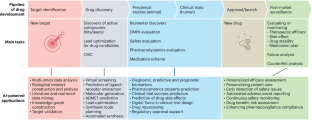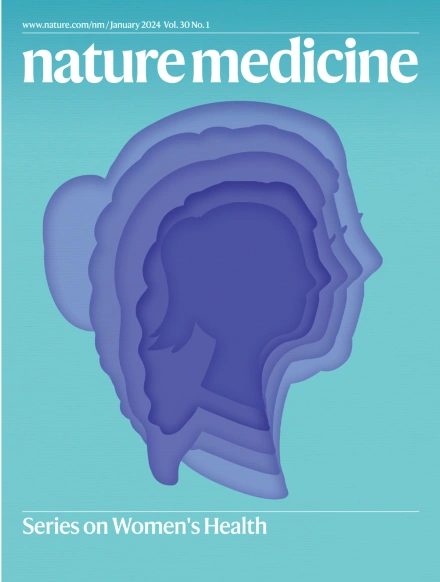药物开发中的人工智能
IF 58.7
1区 医学
Q1 BIOCHEMISTRY & MOLECULAR BIOLOGY
引用次数: 0
摘要
药物开发是一项复杂而耗时的工作,传统上依赖于药物开发人员的经验和试错实验。人工智能(AI)技术的出现,尤其是新兴的大型语言模型和生成式人工智能,有望重新定义这一模式。将人工智能驱动的方法整合到药物开发流程中,已经预示着这一流程的效率和效果将得到微妙而有意义的提升。在此,我们将概述人工智能应用在整个药物开发工作流程中的最新进展,包括疾病靶点识别、药物发现、临床前和临床研究以及上市后监测。最后,我们对当前面临的挑战进行了批判性研究,以突出人工智能辅助药物开发领域未来大有可为的研究方向。本文章由计算机程序翻译,如有差异,请以英文原文为准。


Artificial intelligence in drug development
Drug development is a complex and time-consuming endeavor that traditionally relies on the experience of drug developers and trial-and-error experimentation. The advent of artificial intelligence (AI) technologies, particularly emerging large language models and generative AI, is poised to redefine this paradigm. The integration of AI-driven methodologies into the drug development pipeline has already heralded subtle yet meaningful enhancements in both the efficiency and effectiveness of this process. Here we present an overview of recent advancements in AI applications across the entire drug development workflow, encompassing the identification of disease targets, drug discovery, preclinical and clinical studies, and post-market surveillance. Lastly, we critically examine the prevailing challenges to highlight promising future research directions in AI-augmented drug development. This Review explores the state-of-the-art applications of artificial intelligence in small-molecule drug development, from target identification and drug synthesis up to clinical trial design and conduct.
求助全文
通过发布文献求助,成功后即可免费获取论文全文。
去求助
来源期刊

Nature Medicine
医学-生化与分子生物学
CiteScore
100.90
自引率
0.70%
发文量
525
审稿时长
1 months
期刊介绍:
Nature Medicine is a monthly journal publishing original peer-reviewed research in all areas of medicine. The publication focuses on originality, timeliness, interdisciplinary interest, and the impact on improving human health. In addition to research articles, Nature Medicine also publishes commissioned content such as News, Reviews, and Perspectives. This content aims to provide context for the latest advances in translational and clinical research, reaching a wide audience of M.D. and Ph.D. readers. All editorial decisions for the journal are made by a team of full-time professional editors.
Nature Medicine consider all types of clinical research, including:
-Case-reports and small case series
-Clinical trials, whether phase 1, 2, 3 or 4
-Observational studies
-Meta-analyses
-Biomarker studies
-Public and global health studies
Nature Medicine is also committed to facilitating communication between translational and clinical researchers. As such, we consider “hybrid” studies with preclinical and translational findings reported alongside data from clinical studies.
 求助内容:
求助内容: 应助结果提醒方式:
应助结果提醒方式:


